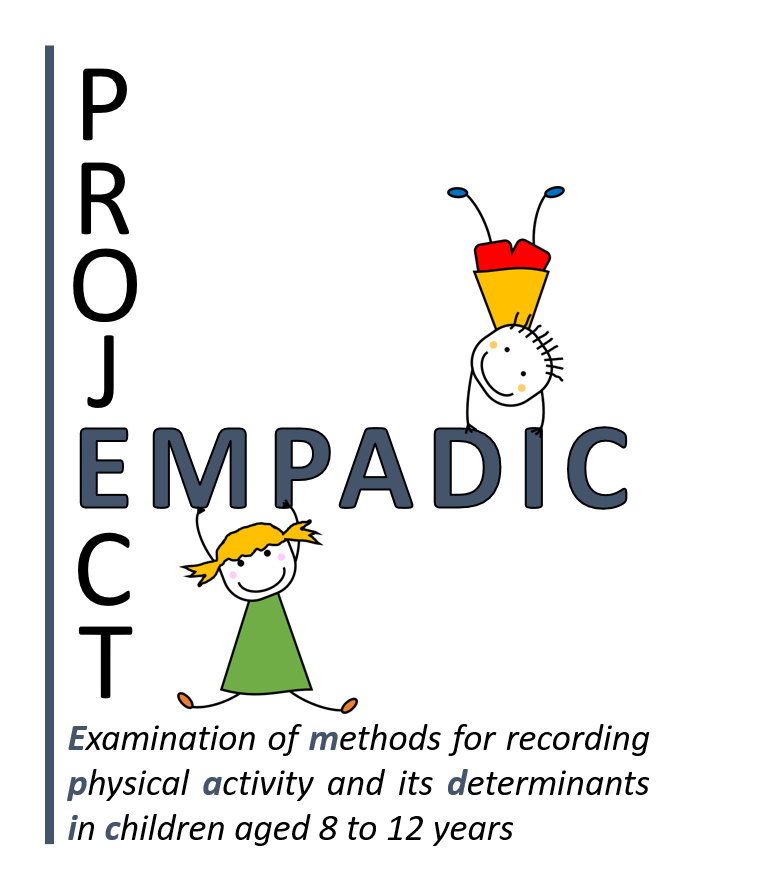EMPADIC
EMPADIC - Examination of methods for recording physical activity and its determinants in children aged 8 to 12 years
 Background:
Background:
The study “EMPADIC” aims at the calibration and verification of an accelerometer to measure the physical activity of children aged 8 to 12 years and the validation of questionnaires to measure physical activity conditioning factors. Interest in the measurement of physical activity in children has been growing in recent years as obesity and other health risks associated with physical inactivity are increasingly common at an early age.
In a large number of studies, retrospective questionnaires are used to record physical activity. In contrast, technical measuring methods such as accelerometry allow objective and non-invasive recording of physical activity, put less stress on study participants and generate low reactivity. The Move4 sensor used in this research project has already been extensively validated and tested for adults. A calibration for children aged 8 to 12 years is the aim of the current research project.
In addition to the recording of physical activity, measuring instruments are required that can identify determinants of physical activity. So far, studies in the USA and Australia in particular have investigated the relationship between the neighborhood environment and physical activity behavior. In Germany, research projects are the exception or only refer to adulthood. Due to the lack of German-language measuring instruments to investigate the neighborhood environment from the parents’ and children’s perspective and the family environment, the present project aims to validate selected instruments. These were initially translated from English using a back-forward translation procedure, culturally adapted and cognitively tested. By translating, adapting and using the questionnaires in German, important insights for measures to promote physical activity can be gained. In addition, the German version of the questionnaires enables the determinants of physical activity in childhood to be recorded according to international standards and compared with the study results already available.
The project consists of two elements:
1. Data collection for modelling and validation of the energy turnover and activity level estimates from accelerometer data
2. Validation of questionnaires ondeterminants ofphysical activity
Study design:
In the present study, a test-retest design is used to verify the reliability of child and parent questionnaires, as well as to calibrate the accelerometer, check different wearing positions for validity, and verify the test-retest reliability of the sensor. The two measurement dates are approximately one week apart. An additional reference method (SOFIT) will be applied for the validation of estimated activity levels.
Project management: Prof. Dr. Anne Kerstin Reimers
Project collaborators: Dr. Eliane Engels, Isabel Marzi, Franziska Beck